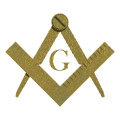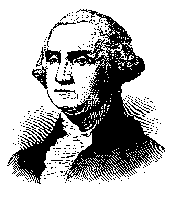 |
George Washington Lodge No. 820 Ancient Free & Accepted Masons under the American Canadian Grand Lodge United Grand Lodges of Germany Zhd. Gashthaus
Schleppi
|
 |
![]()
|
|
FREEMASONRY ORGANIZATIONFreemasons meet and perform their work in Lodges, which are chartered by Grand Lodges. With but minor differences, each territorial Grand Lodge is independent, autonomous, and sovereign, responsible for administering the Lodges within its jurisdiction. There is no central worldwide authority governing all Freemasonry, but each Grand Lodge, in order to be recognized as 'regular' by others must maintain minimum acceptable standards thereby ensuring adherence to established 'basic principles' for recognition, and the continuity of many cherished traditions and practices. The officers of a Grand Lodge are either elected or appointed, and each has certain administrative or ceremonial duties or responsibilities as outlined in the Code or Constitution of the particular Grand Lodge, or as dictated by Masonic tradition. Let's look how a typical Grand Lodge may be organized from bottom up. The LodgeLodges are the basic, and the oldest, organizations in Freemasonry. It is sometimes called a 'Blue' or 'Craft' Lodge. We believe the term comes from the lodges (shelters) constructed at the building sites of cathedrals and castles during the Middle Ages. Masons worked and lived in these shelters. What goes on in lodges is partly the formal business that any association has to do, such as the consideration of minutes of the previous meeting, and dealing with propositions for membership, accounts of general and charitable funds, subscriptions, donations, and the like. However, the real core of Freemasonry is the ceremonies which involve admitting new masons and teaching them Freemasonry's moral message. The moral message is not peculiar to Freemasonry, but is common to many systems - natural equality, dependence on others, benevolence, intellectual truth, inevitable death, fidelity - all under God. The method of teaching is Freemasonry's own, a series of ritual dramas, based on ancient mythology and stonemasons' customs and tools, in which the members of the lodge work together to get the message across to each new member. Despite popular myths, Masonic ceremonies are not at all secret and printed copies are freely available (its history is incidentally fascinating). The quality of its language is readily apparent and the actions are not hard to imagine. However, merely reading the printed word does not explain that the ceremonies are delivered from memory, nor how everyone in a lodge (and not just the officers directly concerned) concentrates on familiar words and actions which are new to the candidate or how effectively the ceremony makes an impression on the candidate. Each lodge is headed by an officer called the "Worshipful Master." "Worshipful" means "highly respected" or "honored." The term comes from the judicial system of England and carries no religious implication. "Master" means "leader," or "best qualified," as in "Concert Master" or "Master Architect." Each officer of a lodge has a title that originated during the Middle Ages. These titles may vary somewhat from state to state, but in general the officers and their contemporary equivalents are:
Once a year officers of the lodge are elected by its members. People get nominated and elected by ballots. The elected positions are: Master, Senior Warden, Junior Warden, Treasurer, and Secretary. The other positions are appointed by the elected master such as the Senior and Junior Deacon, Senior and Junior Deacon, Tyler, Chaplain, a Master of Ceremonies or Marshall and some lodges may appoint as well an Assistant Secretary and an Assistant Treasurer. All Freemasons are styled and may be addressed by other Freemasons as 'Brother'. An Installed Master is addressed as "Worshipful Brother" while in the chair of his lodge, and after his period of office he becomes a Past Master. Through the Secretary, the Master formally convenes a lodge's regular meetings, but his power comes from authority from Grand Lodge. The Master must admonish any behavior in the lodge that may disrupt the harmony of the meeting, and if it persists, to censure it, or even exclude the Brother causing the disharmony for the remainder of the meeting if the majority of the members agree. It is undoubtedly the Master's prerogative to decide what is to be the business transacted at each lodge meeting, but much of this is governed by the by-laws of the lodge and the Grand Lodge's Book of Constitutions or Code. When it comes to performing the ceremonies (what we call the ritual) each lodge may have a peculiar way of doing it but within the boundaries of the Grand Lodge that it falls to. From the point of view of legislation, neither Master nor lodge has any absolute authority, since no by-law or amendment can be effective until it has been approved by a higher authority. In any case the Grand Master's approval would not be given to any by-law or amendment which was at odds with its Grand Lodge Book of Constitutions or Code. When it comes to internal discipline, a lodge is free to exclude one of its members 'for sufficient cause', provided that it goes the right constitutional way about it. A lodge has the similarities of a democracy where one man has one vote on all matters that pertains to that lodge, but it is, in addition, governed not only by its by-laws, which as we have seen are subject to outside control, but also by the Grand Lodge's Book of Constitutions or Code. Provincial and District Grand LodgesBecause there might be lots of lodges under the Grand Lodge with some thousands of members in total, it makes sense to have a local level of administration - the Provincial and District Grand Lodges. How many and what are the boundaries it all depends on that particular Grand Lodge. Some grand Lodges may have District only, some ,ay have Provincial or both. In the United States it is usually Districts and in Canada Provincial, but the United Kingdom uses Provincial Grand Lodges - mostly corresponding in area to the old counties - and District Grand lodges which administer lodges under the United Grand Lodge of England which are based overseas. With the number of lodges in a Province or District varying from more than 100 to single figures, there are great varieties in the methods of internal administration, but there are some basic principles which apply to all of them. The Provincial Grand Master (PGM) or Deputy District Grand Master (DDGM) is appointed by the Grand Master and after his installation and he has full control over its jurisdiction. Lastly he may have very considerable powers for Masonic discipline subject only to the right of appeal from his decision to Grand Lodge. In the great majority of cases the PGM/DDGM are appointed for a term of a year or two, and their ranks are honors conferred for work done or to be expected. Grand LodgeFirst of all, no Grand Lodges might operate the same way. Each Grand Lodge will operate according to its unique culture, capabilities and traditions. The Grand Lodge is like an incorporated association. Its organization is in some respects like a limited company. Its policy is enforced by the Grand Master and carried out by the Grand Secretary. Major matters of policy, changes to the Book of Constitution or Code or major procedures, have to be put to what corresponds to the shareholders - members of the Grand Lodge which are all members of lodges under that Grand Lodge's jurisdiction. The authority to set up new lodges, appoint Provincial and or District Deputy Grand Masters and other Grand Officers, is part of the prerogative of the Grand Master who is the leadership of the Grand Lodge. There are committees which help the Grand Master with its work. Some could dealt with finance, external relations (dealing with relations with other Grand Lodges), procedure, staff (dealing with Grand Lodge's employees), and education and publications committees. Other Grand LodgesFreemasonry is practiced under many independent Grand Lodges with principles or standards similar to those set by the United Grand Lodge of England throughout its history. Grand Lodges recognizes each other and if that is the case, then members from those Grand Lodge's may visit each other and be recognized as lawful brothers. To be recognized, a Grand Lodge must meet the following standards:
There are some self-styled Masonic bodies which do not meet these standards. For instance, they might not demand a belief in a supreme being, or they might allow or even encourage their members to participate as Freemasons in politics. These bodies are not recognized by most Grand Lodges as being Masonically regular, and Masonic contact with them is forbidden. Put plainly, it merely means that lodge's members under both Grand Lodges cannot attend each other meetings nor associate together in a quasi-official way (e.g. setting up some sort of group with a name such as The Pan-Masonic League for the Improvement of Goodwill Around the World). From time to time some Grand Lodges which we have previously not recognized find themselves able to meet the above requirements and Masonic contact with them is then allowed. Likewise, other Grand Lodges fail to meet some or all of the above requirements and recognition has to be withdrawn. Regularity is a fact. Relations between regular constitutions (i.e. Grand Lodges and their lodges) follow recognition which is a bi-lateral act decided by the Grand Lodges concerned. Without regularity, there can be no recognition. Without recognition, there can be no relations between Grand Lodges or Freemasons in their lodges. Recognition, once granted by Grand Lodge 'A' to a regular Grand Lodge 'B' can be withdrawn. This does not affect the regularity of Grand Lodge 'B', but it does mean that Freemasons under Grand Lodge 'A' cannot, in Masonic circumstances, meet Freemasons under Grand Lodge 'B'. An up to date list of recognized Grand Lodges can be found in the Masonic Year Book. Now let's see how Freemasonry is organize here in Germany
|
Legal Disclaimer
Send mail to webmaster with
questions or comments about this web site.
|